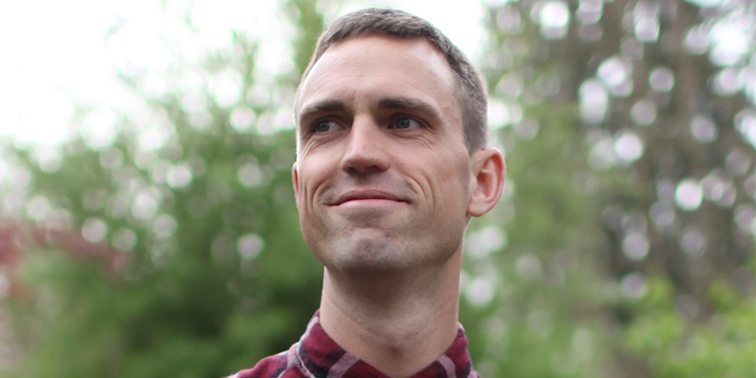This week’s guest on Famous Failures is Ryan Carson.
Ryan Carson is neither ashamed nor apologetic about his initial failures as an entrepreneur. Rocky beginnings are what spurred Ryan to evaluate his motivations very early in his entrepreneurial journey, and avoid a boatload of heartache down the road. He eventually found a true understanding of his ‘why’, and a professional purpose he was ready to fight for.
Today, Ryan is the CEO of Treehouse, an online technology school that aims to revolutionize education by providing debt-free training to aspiring coders. Treehouse’s newest development, Educate Yourself, is a podcast that discusses the latest industry news in the “future of learning, higher ed, and ed tech.”
What follows is an edited version of our conversation. I hope you enjoy it as much as I did.
If you can think back in your life, what have been some of the most valuable failures that you’ve had?
I would say the first was my first business, Flight Deck. It was a simple web app that was designed to send large files, like Dropbox.
I succeeded in launching it. It was a one-person company. I built the app. I marketed it. I realized that there was so much I didn’t know.
I was able to get one client that paid me 3,000 pounds—a perpetuity license for them. I got a couple more clients that paid me 200 pounds, monthly, so I started building monthly, recurring revenue. I got to a point where I was making about 1000 pounds a month in revenue, and hit a wall.
I hit a wall with my motivation, too. What I learned from that is that I needed a much deeper why for the business. I realized, “What am I doing? I’m not passionate about sending large files. I’m not ready to go to the mat for this thing.” The reason why I’ve been able to endure through Treehouse for seven years is because I have a why that’s so deep that I won’t quit because it matters too much to me.
How would you describe the why of Treehouse?
I want to build the future of education so I can help as many people as I can. When I’m dead someday, I want people to say, “Ryan changed,” ideally, “millions of lives.” I feel like that would be a life worth living.
Any other valuable failures you’ve had in your life?
We tried an experiment with not having managers—like a holacracy, but it was kind of our own version of that. It failed, ultimately. I guess that’s what experiments are for, but it really proved to me that people need and want to be trained on how to be good managers, people want to be led in a healthy way. Most people do not want to be CEO entrepreneurs. So I learned that we just need to spend time and money training our managers how to be good managers versus removing managers.
There are these time-tested rules about business and life, and it’s best not to try to innovate around those rules.
None of this is perfect. It’s more of accepting the fact that no matter what system you have, it may not always go amazingly well—so, just keep going.
At what point do you realize an experiment, like the one you tried with no managers, is actually a failure and that it’s not working? What was that turning point where you realized that this innovative system wasn’t doing what it was supposed to do?
We saw our revenue kind of flat line. It’s like, “Whoa, this is not working, so let’s change it.” I should have seen it sooner. C’est la vie.
What would you say was the hardest failure you’ve ever had? What advice do you wish you had when you were navigating that failure?
One of the harder ones was last year, when we had to let go of about 20 people to be profitable.
Ultimately every failure is on the shoulders of the CEO.
I had to own that and say that’s on me. What I learned is that it’s very important to communicate clearly to people what’s happening in the business. I think I was communicating an optimistic message because I am an optimistic person, but wasn’t truly connecting the dots for everybody about the areas of the business that were struggling. I should have been more fair about that. Every business needs a very clear focus. We crossed the barrier to the size of company where, as the CEO, I needed to be laying a very clear strategy and trust and empower people to get that done, and be less involved in the details. My behavior of zooming in and zooming out was destructive and hard for people. It’s very hard. How do you hold people accountable, but yet give them room to maneuver? The answer comes back to this regular cadence of accountability, and then letting people do their jobs in between that cadence.
The right balance between micromanagement and being too “hands off” is a difficult one to strike.
If you’re like me, you have a personality where generally you don’t enjoy being a hard ass. I’m either kind of angry because something is not happening, or really nice. But I’m learning to walk this calm middle ground where you hold people accountable, and you do so in a calm way.
It’s realizing, “Listen, we all have a contract here. It’s a business contract.” People are hired for results and you’re hired to be a good boss—you both need to do what you’re supposed to do.
How are you failing right now?
That’s a good question. I’m doing a lot of high level sales right now—enterprise sales and large business development—I think I’m not asking people to buy. I just need to close. If people say no, I need to move on. So that’s something I literally am changing today.
What do you think is holding you back from asking for the sale?
I don’t like rejection. I don’t like to be seen as someone specifically asking you for something. I shy away from that, and that’s not helpful to anybody. If people are going to find what I’m selling valuable, they’re going to want to buy it. I just need to ask, and if they don’t find it valuable, then they’re not going to buy it, and that’s okay. I just need to move on.
We all have something that we want people to buy and that’s okay. So why am I not okay? If I don’t believe in it, that’s something different. But if I believe in it, then I should have zero problems asking people to buy.
Bold



